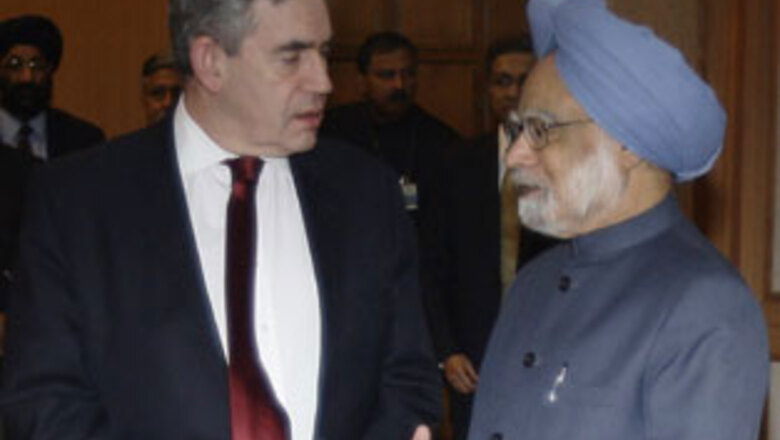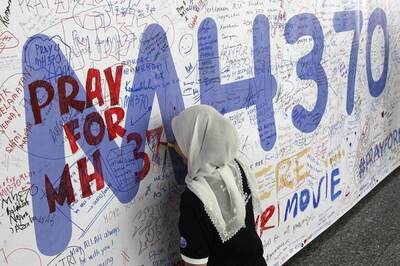
views
New Delhi: Backing India's charge about the involvement of Lashkar-e-Taiba (LeT) in the Mumbai terror strikes, British prime minister Gordon Brown on Sunday said that Pakistan has "a lot to answer for" and the attacks have brought “the whole world” in support of India.
Underlining global solidarity with India, Brown stressed that the international community has to ensure that there are “no safe havens for terrorists and no hiding places for those who finance terror attacks".
"We know the group responsible is LeT (Lashkar-e-Taiba), and they (Pakistan) have a great deal to answer for," Brown told reporters when asked whether Pakistan was doing enough to crack down on anti-terror outfits working against India.
"We know that some arrests have been made and some people have been held even as we speak," said Brown after holding talks with Indian Prime Minister Manmohan Singh here.
"I hope to convey India's concerns when I meet President (Asaf Ali) Zardari," Brown said as he wrapped up his brief visit to India.
“I am also visiting Islamabad. I will explain the concerns Indian people have,” said Brown, minutes before he left for the Pakistani capital.
The LeT, which was banned in 2002 and declared a terrorist organization, is widely seen as a creation of Pakistan's spy agency Inter Services Intelligence (ISI) to wage a proxy war to challenge Indian rule in Jammu and Kashmir.
India suspects the involvement of LeT and its public front Jamaat-ud-Dawah (JuD) for plotting the Mumbai terror attacks that killed more than 170 people, including 26 foreigners. Three Britons were among those killed in the three-day siege in Mumbai last month.
“The important thing to recognise is that President Zardari has made it clear that he wishes to do all he can to counter terrorism and work together with India,” the British prime minister said, adding that he will be able to tell more after talks with Zardari and his top aides later in the day.
Brown, who arrived here on a surprise visit lasting a few hours, held talks with Manmohan Singh and his advisers over breakfast on Sunday morning.
Brown, the first foreign head of state to visit India in connection with the Mumbai attacks, assured India of the support of the international community in dealing with the outrageous terror that is suspected of having trans-national links.
"I have told the prime minister that India has support of the whole world. We will work together in tackling terrorism. We will work together to build international support in tackling terrorism," Brown stressed.
"We will work together on issues of security. You will get support of many members of the international community. I wanted to come to India and give my condolences first hand at this terrible outrage in Mumbai that has shocked the world," he said.
The two leaders discussed a range of issues that mostly focused on Pakistan's response to the Mumbai terror attacks and the escalating tensions in the region as more evidence emerged linking Pakistan-based terrorist outfits to the Mumbai strikes. The two leaders also discussed a sharp spike in violence led by a resurgent Taliban in Afghanistan, reliable sources told IANS.
“The whole world will have to come together to ensure that there are no safe havens for terrorists and no hiding places for those who finance terror attacks,” he said while praising the "resilience and resolve of the Indian people" in the aftermath of the Mumbai attacks.
“We got to attack the finances of terrorists. We got to expose perverse and unacceptable messages that are sent by terrorist groups that are perversions of religions and faiths,” he said.
“We see the consequences of terrorism in that country. That's why we are so determined to fight it,” he replied when asked whether the India-Pakistan tensions will impact the West-led offensive against Taliban in Afghanistan.
Brown's unscheduled visit to New Delhi and Islamabad is seen as a reflection of Britain's concerns, shared by the US and other Western countries, to ensure that India-Pakistan tensions do not affect the anti-Taliban offensive in Afghanistan.
“Wherever there is terrorism, it has to be fought. Wherever there is terrorism it affects stability and cohesion of that country,” he stressed.


















Comments
0 comment